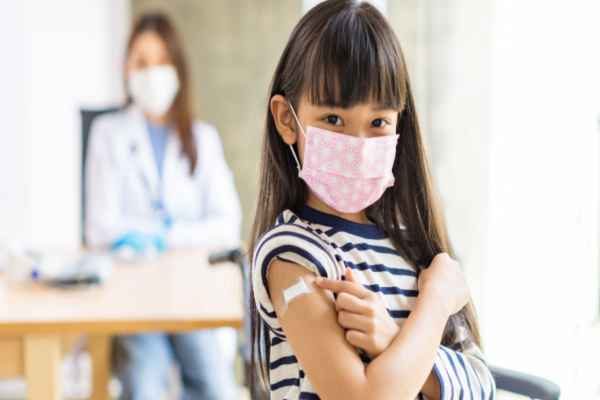Last week, the Advisory Committee on Immunization Practices at the Centers for Disease Control and Prevention said that everyone ages 6 months and older should get the new COVID-19 vaccine this fall, and kids under 5 may be eligible to receive two doses of the new vaccine if they haven’t been vaccinated previously.
The new COVID-19 mRNA vaccines are designed to protect against the XBB.1.5 coronavirus variant, which is a subvariant of omicron that was spreading widely this past winter. “What we’re seeing is that the circulating variants are descendants of that line, so we have reason to believe it will work well,” Woods explains. The new vaccines also appear to provide protection against newer strains including EG.5 and BA.2.86, the Food and Drug Administration (FDA) says.
“We’re not seeing levels of hospitalization like we’ve seen in earlier waves; however, we are still seeing people hospitalized,” Murray says. “So we do think there is benefit from the updated vaccine that provides coverage against strains that are more closely related to what’s circulating.”
For some people, getting an updated COVID-19 booster is especially urgent. People with certain chronic health issues, such as diabetes, obesity or lung, heart, liver or kidney diseases should certainly consider getting the new COVID-19 vaccine, Werbel says. Additionally, older adults, people with compromised immune systems and people who are pregnant are also at a higher risk for severe COVID-19 symptoms and should consider getting the booster, Woods says.
But, do relatively young and healthy people need to get it, too? Because the COVID-19 virus keeps mutating, new variants keep developing, and COVID cases (and deaths) are on the rise, the CDC’s latest recommendation is that everyone who’s at least 6 months age should get an updated COVID-19 vaccine to protect them through this fall and winter season. That includes low-risk individuals who received their previous COVID-19 vaccine doses at least two months ago.
“There is some room for a reasonable debate about what the added value is for an annual vaccine for someone who is young and healthy,” Woods says. “On the flip side, we know that people who were vaccinated and who don’t get COVID or severe COVID are more likely to not get long COVID.”
Even if you’re young, healthy and had previous vaccines or COVID-19 infections, “you have a very minimal risk that (you’re) going to have bad luck,” Werbel says, which could mean ending up in the hospital or with long COVID. “And you can’t always control for luck,” he says.
There are also societal factors to keep in mind, the experts say, particularly as we approach the winter holiday season. “If you are going to Thanksgiving with Nana, she’s not you,” Werbel says. “Even though you’ve had prior vaccines or COVID, you can get sick and you can get Nana sick.”
This is where other protective habits can come in handy during times of heightened COVID-19 activity, Woods says, including wearing a mask in crowded public settings, opting for outdoor gatherings when the weather allows and stocking up on at-home tests just in case.
“It’s not fair to assume that everyone’s risk tolerance is the same as whatever yours is,” she explains. You can’t necessarily tell if people around you have risk factors for severe COVID-19 simply by looking at them, Woods says, “so I think it’s still important for us all to be responsible and realize that we don’t live on an island.”
—
Photo Credit: anon_tae / Shutterstock.com
